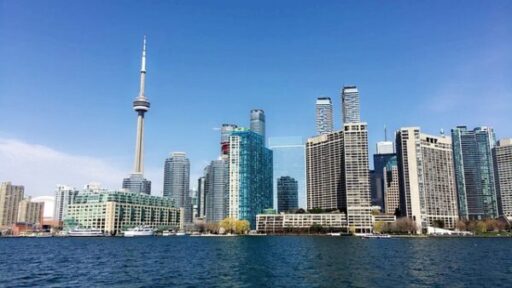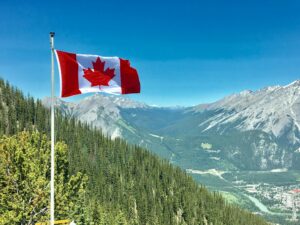Yes. Expats (non-Canadians) can legally purchase property in Canada, but recent legal changes and tax implications have introduced new complexities.
This post will answer the question ‘Can expats buy property in Canada’ as well as provide a comprehensive overview of the legal, financial, and tax considerations for expats— that is, non-Canadians living in Canada— looking to purchase property in the country.
If you are looking to invest as an expat or high-net-worth individual, which is what I specialize in, you can email me (advice@adamfayed.com) or WhatsApp (+44-7393-450-837).
This includes if you are looking for a second opinion or alternative investments.
Some of the facts might change from the time of writing, and nothing written here is formal advice.

While Canadian law does not prohibit foreign nationals or non-residents from owning property, federal and provincial governments have enacted measures to regulate foreign ownership, particularly in response to housing affordability concerns.
Can expats buy property in Canada? What to know
The most notable regulation is the Prohibition on the Purchase of Residential Property by Non-Canadians Act, which came into effect on January 1, 2023, restricting foreign nationals from buying certain types of residential properties in Canada.
Beyond legal eligibility, expats face unique challenges related to financing options, tax obligations, foreign ownership restrictions, and property management. Understanding these factors is critical to avoid unexpected legal issues, financial penalties, or tax liabilities.
Canada Expat Rules: Legal Eligibility for Expats to Buy Property

So can foreigners buy property in Canada? Yes. Canada generally allows non-residents, foreign nationals, and expats to purchase and invest in property without the need for citizenship or permanent residency.
Ownership laws are governed at the federal, provincial, and municipal levels, with variations depending on the location and type of property.
Expats can own residential, commercial, and recreational properties, but recent laws have introduced restrictions, particularly on residential real estate.
Prohibition on the Purchase of Residential Property by Non-Canadians Act (2023)
Effective January 1, 2023, this federal law prohibits non-Canadians from purchasing residential property in Canada for a period initially set to last two years, with potential for extension. This law applies to:
- Detached houses, semi-detached houses, rowhouses, residential condos, and similar properties within census metropolitan areas (CMAs) and census agglomerations (CAs).
- Non-Canadian entities, including foreign corporations and individuals who are not Canadian citizens or permanent residents.
Violations of this law can result in fines of up to CAD 10,000, and courts may order the sale of the property, with non-residents prohibited from profiting from the transaction.

Exemptions to the Foreign Buyer Ban
Certain individuals and situations are exempt from the prohibition, including:
- Temporary residents with valid work permits who meet specific criteria (e.g., having worked in Canada for at least three years within the past four years and filed Canadian tax returns).
- International students meeting strict conditions, such as having been enrolled in Canada for at least five years and not purchasing property over CAD 500,000.
- Refugees and protected persons under Canadian immigration law.
- Purchases outside of restricted areas, such as rural properties and vacation homes not located within designated urban zones.
Provincial and Municipal Restrictions
In addition to federal laws, some provinces impose additional taxes or restrictions on foreign buyers:
- British Columbia (BC): The Foreign Buyers’ Tax applies a 20% tax on the purchase price of residential properties in certain regions, including Vancouver.
- Ontario: Implements a Non-Resident Speculation Tax (NRST) of 25% in the Greater Golden Horseshoe region.
- Prince Edward Island (PEI) and Nova Scotia: Have restrictions on non-resident property ownership, particularly for land in rural areas.

Ownership Structures for Foreign Buyers
Expats can purchase property individually, through a corporation, or via trusts. Some foreign investors use holding companies for tax planning, asset protection, or privacy reasons.
However, using a corporate structure can trigger additional reporting requirements, such as compliance with Canada’s Beneficial Ownership Registry and potential corporate tax obligations.
What about Canadian non-residents? Can I buy property in Canada as a non-resident?
Yes, with caveats. Like expats, while non-residents can own property, they do not automatically acquire residency rights or immigration privileges through property ownership.
Additionally, owning land in Canada does not exempt foreign owners from local zoning laws, environmental regulations, or land-use restrictions, especially in provinces with agricultural land protections (e.g., Quebec’s Agricultural Land Protection Act).

Legal advice from a Canadian real estate lawyer familiar with cross-border property transactions is highly recommended to ensure compliance with all applicable laws.
Buying Property in Canada for Foreigners: What types of properties can you buy?
Expats can purchase a variety of property types in Canada, although federal, provincial, and municipal regulations may impose restrictions depending on the property’s location and use.
Residential Properties
Expats can buy residential properties, including detached homes, condominiums, townhouses, and apartments, but with restrictions under the Prohibition on the Purchase of Residential Property by Non-Canadians Act (effective from January 1, 2023).
This law applies to properties in census metropolitan areas (CMAs) and census agglomerations (CAs)—essentially covering most urban areas in Canada.
However, this restriction doesn’t apply to rural properties or areas outside these designated urban zones.
Expats who meet exemption criteria—such as temporary residents with work permits, certain international students, and refugees—can still buy residential property even in restricted areas, subject to specific conditions.

Commercial Properties
There are no federal restrictions on foreign ownership of commercial properties in Canada. Expats can freely invest in office buildings, retail spaces, industrial properties, hotels, and warehouses.
Commercial real estate is often used by foreign investors for business operations, rental income, or long-term capital growth.
Depending on the province, there may be local regulations regarding zoning laws, business licensing, or environmental assessments that affect property use.
Recreational or Vacation Homes
Expats can purchase vacation properties such as cottages, cabins, and lakefront homes, especially in rural or recreational areas.
These properties are generally exempt from the foreign buyer ban if they are located outside urban centers covered by the federal restriction.
Popular areas like Whistler (BC), Muskoka (Ontario), and parts of Quebec’s Laurentians are often targeted by foreign buyers for recreational use.
However, in provinces like Prince Edward Island or Nova Scotia, there may be restrictions on the amount of land non-residents can own, particularly in rural or coastal areas.

Agricultural and Resource Lands
Ownership of agricultural land, forests, and natural resource properties is regulated at the provincial level. For example:
- In Quebec, foreign ownership of agricultural land is restricted to a maximum of 4 hectares (10 acres) without special approval.
- Manitoba and Saskatchewan limit foreign ownership of farmland, with certain exceptions for corporations or family members.
Expats interested in buying agricultural land should consult provincial laws to confirm eligibility and land-use restrictions.
Financing a Property as an Expat
Expats can finance property purchases in Canada through mortgages from Canadian financial institutions, but the process differs significantly from that of Canadian residents.
Expats typically face stricter requirements, including higher down payments, additional documentation, and potentially higher interest rates.
Mortgage Options for Expats
Most major Canadian banks, such as RBC, TD, Scotiabank, and BMO, offer mortgage products specifically designed for non-residents and foreign buyers. These institutions may have dedicated programs for expats, allowing them to secure mortgages with flexible terms.
Additionally, private lenders and mortgage brokers offer alternatives for those who may not meet traditional banking criteria, though these often come with higher interest rates and fees.

Down Payment Requirements
Non-residents are generally required to provide a larger down payment compared to Canadian citizens and permanent residents. The minimum down payment is typically:
- 35% of the purchase price for non-residents without Canadian income.
- 20%–25% if the expat has proof of Canadian income or a strong financial profile.
In contrast, Canadian residents can often secure mortgages with as little as 5% down for properties under CAD 500,000. The higher down payment requirement for expats is due to the increased risk perceived by lenders when dealing with foreign buyers.
Credit History
Expats may face challenges if they lack a Canadian credit history, as most lenders prefer to assess creditworthiness through the Canadian credit bureau system.
However, many banks accept international credit reports, proof of income, bank statements, and employment verification from the expat’s home country. Some lenders may request additional documentation, such as:
- Proof of foreign income (tax returns, pay stubs, or employment contracts).
- Bank reference letters from the expat’s home country.
- Proof of assets, including investment portfolios or savings accounts.

Interest Rates for Non-Residents
Expats often face slightly higher mortgage interest rates compared to Canadian residents due to the perceived risk of lending to foreign buyers.
The rate difference can vary between 0.25% to 1% higher, depending on the lender, loan amount, and borrower’s financial profile. Expats may be able to negotiate better rates if they have substantial assets, a strong credit history, or a large down payment.
Required Documentation for Mortgage Approval
Typical documentation required to secure a mortgage in Canada as an expat includes:
- Valid passport and visa or work permit (if applicable).
- Proof of income (employment letter, recent pay stubs, or tax returns).
- Proof of down payment (bank statements confirming the source of funds).
- Credit report (Canadian or international).
- Canadian bank account (often required to process mortgage payments).

Foreign Income and Currency Considerations
Expats earning income in a foreign currency may face additional scrutiny from lenders, particularly regarding currency exchange risks. Lenders may apply a “foreign income discount,” reducing the income considered for mortgage qualification to account for currency fluctuations.
Additionally, mortgage payments are typically made in CAD, so expats must consider foreign exchange fees and exchange rate risks if their income is in another currency.
For more guidance, working with an expat financial advisor familiar with provincial regulations can help navigate the process more efficiently.
Pained by financial indecision?

Adam is an internationally recognised author on financial matters with over 830million answer views on Quora, a widely sold book on Amazon, and a contributor on Forbes.



